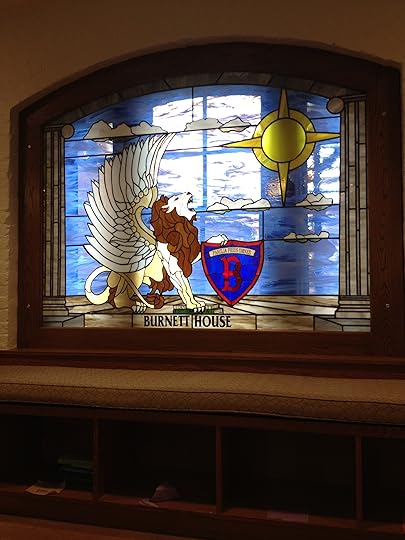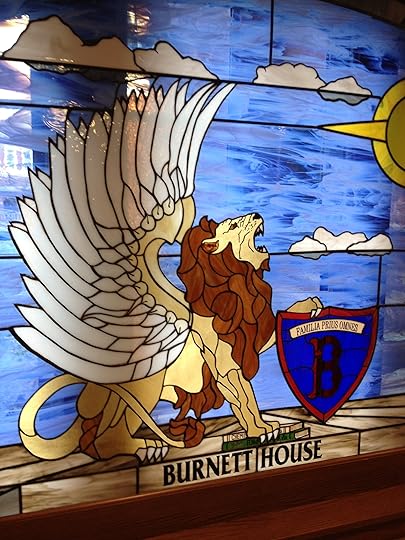Patrick Todoroff's Blog, page 33
June 13, 2013
Swiped from Crosswalk
An article on Christians, Art and Culture. Nice safe summary of what I believe in this regard. Crosswalk is a decent site with good articles and perspectives. Worth bookmarking.
***
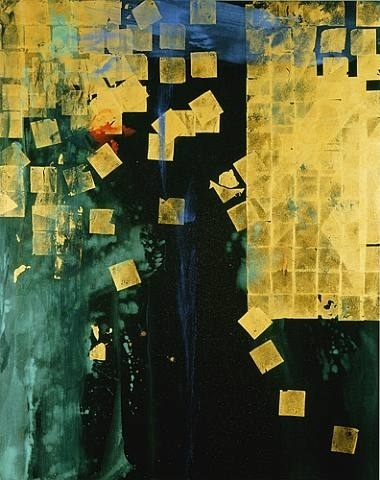
‘Joy’ by Makoto Fujimura
Philip Ryken, president of Wheaton College and a former pastor, knows that artists who are Christians often feel like fish out of water. Ryken says, “Their faith in Christ seems odd to many of their friends in the artistic community — almost as odd as their calling as artists seems to some of their friends at church.”
This is more than a tragedy. It’s a lost opportunity. Ryken notes that “Christians called to paint, draw, sculpt, sing, act, dance, and play music have extraordinary opportunities to witness to the grace, beauty and truth of the gospel. … The arts are the leading edge of culture,” he says.
So with tongue firmly planted in cheek, Ryken asked some of his artist friends what churches do to discourage them from their dual calling as artists and Christians.
First, they said, treat the arts as window dressing for the truth rather than the window into reality it’s intended to be. Second, embrace bad art just because it’s “Christian.” Third, value artists only for their artistic gifts, but not for the other contributions they can make as thinkers and servants with a unique perspective. Fourth, demand that artists only give answers in their work, but never raise questions. Fifth, never pay artists for their work — take advantage of them in ways we would never do with plumbers or accountants. And finally, only validate art that has a direct salvation application.
Unfortunately, too often these are exactly the kinds of things that churches do. But if we want to impact our beauty and truth-starved culture with Christ-honoring art, we have to do better! Come to our website and I’ll direct you to Ryken’s whole list. It’s an eye-opener.
But there’s another side to the coin. Many Christian artists expect to be taken seriously while having bought into the dominant cultural idea that art is all about self-expression. But presenting the obscure and confusing in a trendy way does not a Christian artist make. So, we have to ask, “What, then, is art?”
Artist Makoto Fujimura argues that for the Christian, art must be more than self-expression. It must be communication, because as Christians we deal with objective reality. As one of my mentors once said, art’s job is primarily to “paraphrase reality.” I like that. We can present beauty without being trivial, evil without being gratuitous, and redemption without being hokey.
And the Christian artist is a communicator also because God created through communication — through His spoken word. The creative individual made in the image of the ultimate communicator must be one who communicates as well. Not just what we feel, but what is true and real. Art’s job is to paraphrase Reality.
Now this doesn’t mean Christian art must be preachy or obvious, but it should make us think more deeply and better about life and the world.
For example, Fujimura’s paintings are abstract. Yet because he believes his responsibility is to communicate, he explains his art in writing. He knows that art is not really about the artist — little “a.” It’s about the big Artist — capital “A.”
And we’re not just communicating about God; we’re actually participating with Him. In his book For the Beauty of the Church: Casting a Vision for the Arts, David Taylor says, “Whether through paint or sound, metaphor or movement, we are given the inestimable gift of participating in the re-creative work of the Triune God, anticipating that final and unimaginable re-creation of all matter, space, and time, the fulfillment of all things visible and invisible.”
Two other great books on the Christian view of art are Francis Schaeffer’s classic Art and the Bible and Philip Ryken’s Art for God’s Sake. We have them for you at the BreakPoint online bookstore.
And, let’s commit together to encouraging, not discouraging, Christians in the high calling of art.
John Stonestreet, the host of The Point, a daily national radio program, provides thought-provoking commentaries on current events and life issues from a biblical worldview. John holds degrees from Trinity Evangelical Divinity School (IL) and Bryan College (TN), and is the co-author of Making Sense of Your World: A Biblical Worldview.
BreakPoint commentary airs each weekday on more than one thousand outlets with an estimated listening audience of one million people. BreakPoint provides a Christian perspective on today’s news and trends via radio, interactive media, and print.
Publication date: June 6, 2013


June 11, 2013
RED FLAGS Excerpt
Heard from my editor: Part One is finished. Waiting on the cover, then it’s off to Amazon/Creatspace. Til then, here’s a taste:
***
PART ONE: RED FLAGS
“Mars is not an aesthetic God.”
Confederate Commander John Brown Gordon, at Shiloh.
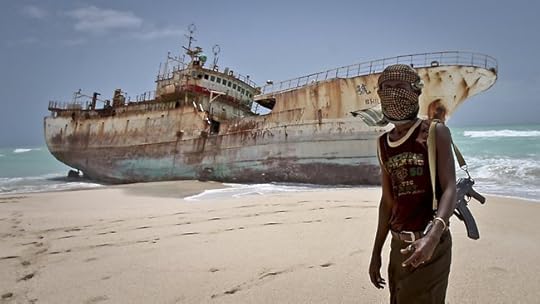
CHAPTER ONE – Mini Puka Boy
Somewhere on the Gulf of Aden.
Abdi was sure he was dying.
His head was dizzy, loose on his neck like a door with one hinge. His stomach clenched with every wave, every jump and roll the boat made. He had nothing left to throw up. He felt empty, crumpled as a paper sack. Surely the angel Azra’il stood ready to escort his soul above the skies.
Thirteen years old, he couldn’t remember ever feeling this bad before.
It had started the second day out at sea. He had spewed hardbread and goat over the rail, and after that, he couldn’t keep anything down. The older soldiers, all SPLM men, had laughed, dubbing him Mini Puka Boy. Now, they sang out the name whenever he came near and wouldn’t let him sleep in the bunks below. Instead, they shoved him toward the ‘puke nest’; a makeshift tent on the bow made from an old tarp and big coils of greasy rope. There, they said, he could vomit over the side whenever he wanted.
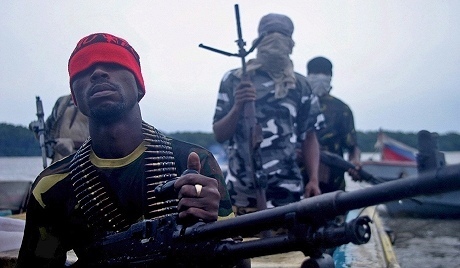
Veteran pirates, the older fighters were full of advice, telling him it would pass on the fourth day, that he must stare at the sky not the ocean, claiming that smoking jaad or chewing khat would make him hungry, make the sea-sickness stop.
But nothing helped. The shakes, the weakness, only grew worse the farther out into the Gulf they went. Three days later, all he could do was lay on the deck like a limp rag.
Last night, one of the SPLM men, the one with the dirty pink rubber hand, brought a bowl of mishaari and spooned the corn mush into his mouth. Abdi managed five bites before it went all over his boots. Pink Hand gave up in disgust, and the older soldiers had cackled even louder. Abdi didn’t even have the strength to get mad. He simply curled up and bit his lip when he wanted to moan.
He has felt better briefly, earlier that morning. He’d woken from the metal stock of his old AK-47 digging in his ribs. Shifting, groping in the dark, his fingers had found a half-filled tin cup beside him. One of the younger boys must have brought it sometime in the night. The water smelled dusty, but Abdi sipped its coolness and kept it down.
The world had been silent save the low wind and the soft lapping of waves. He had actually managed to stand for a minute or two, steadying himself on the rails at the very front of the boat.
The Gulf had spread out around him like a great dark field while the stars shone like hard, bright sparks; a thousand thousands of them spilled across the dome of heaven. Wobbly, stretched thin, Abdi had nevertheless sensed something vast in that moment. Perhaps that was what the Hand of Allah felt like.
He must have fallen back asleep, because the sun was high when he opened his eyes again, and the water tasted like boiled sweat. His gut was in knots once more, so he lay there under the tattered blue tarp and tried to muster up hatred for the captain of this torture voyage.
His cousin Ghedi had lied to get him on board. Abdi was sure of that now.
Ghedi had found him at Dhubbato with their grandmother. Like most other members of the Isaaq clan, the massive UN refugee camp was the last safe place in Somaliland. Teeming, filthy, filled with crime and poverty though it was, at least the Hangash, General Dhul-Fiqaar’s secret police, or roving units of elite Duub Cas, the Red Beret Regiment, couldn’t come and slaughter them at night. Not with so many Peacekeepers watching.
Abdi’s cousin was shahiba, a gang-banger, and Ghedi ran with a crew of other Somali teenager boys, all of them orphans, angry, and Isaaq. A year ago, they had gotten their hands on some old army rifles and started calling themselves the “Harimacad”, the Cheetah militia. Soon after, they had disappeared into the bush to join Professor Hamid and his rebel Somaliland People’s Liberation Movement.

Then, all these months later, Ghedi had barged into their tent as if he’d only been gone a day. Mouthing big talk, he claimed he was no longer a shahiba; the Professor had made him a very important man. A captain. Abdi was suspicious, but Ghedi wore tiger-striped fatigues and had two gold pins on his shirt collar. And he flashed a huge wad of Euros. That was very different.
His cousin boasted he and his militia had been ordered to go on a secret mission for the SPLM. But he needed more men. Was Abdi interested? Ghedi promised a handful of bills and an AK-47 if he came. A real gun, a man’s gun, all for a quick boat ride, he had said.
Abdi hesitated. Then Ghedi had pulled out a nice red shirt. Almost new. It could be Abdi’s right then as a bonus.
That clinched the deal.
Abdi looked down at his new shirt now, all foul and puke-stained. Ghedi had bedeviled him. If he’d known the truth about being a budhcad badeed, he would have grabbed that shirt, kicked his cousin in the stones, and run as fast as he could. Now it was too late.
His cousin had only promised those things because this was his first time pirating and he wanted to impress the SPLM men by bringing his own fighters along. Lying wacaal.
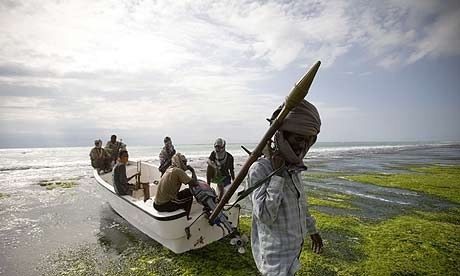
Abdi was going to tell their grandmother about this swindle the second they got back to shore. May Allah bring that day quickly. The thought of their grandmother beating Ghedi with her old belt strap like she used to raised a smile on his cracked lips.
A sudden wind shook his little tent and he peered out across the deck of the pirate ship.
It was one of four that had been towed out to the deep water by a much bigger boat. An old twelve meter, Italian fishing boat whose name was long-buried under layers of paint, the nets and winches had been replaced with battered Dushka 12.7 heavy machine guns. The motors were new and strong however, and Abdi had heard them growling in the back. Originally meant for fifteen men, almost two dozen were packed in for this trip: thirteen SPLM veterans and ten of Ghedi’s Cheetah militia.
Twenty-three fighters, five days, the hot sun, endless slapping waves, the stink of diesel, bodies, and vomit… this was misery. The Dhubbato camp was better.
Waiting made everything worse. Abdi couldn’t understand why they didn’t just attack one of the big cargo ships right now. The SPLM men said there were dozens of them passing through the Strait of Hormuz every hour. Pick one, fire the engines, and converge on the massive target like jackals on a buffalo. Problem solved.
Unless the Russian or Indians had a frigate nearby, all a pirate had to do was circle a few times, fire off a RPG, then go aboard. The men said the shipping companies paid most ransoms within a week. The trick was not to ask for too much. The executives figured pay-offs were cheaper than delaying the cargo. That way, no one suffered.
Abdi couldn’t have agreed more. Even getting shot at was better than getting bounced around and roasted like peanuts.
But no. Ghedi insisted his mission had come from SPLM Headquarters, from Professor Hamid himself even. They would wait, starving, vomiting, baking, until a certain ship came by. The Mashona Breeze. No other would do. Ghedi even had a laptop that sent him messages and pictures from planes high in the sky.
Abdi doubted the commander of the entire rebel army was emailing orders to his cousin, but he was pretty sure the dozen fighters had come along to make sure Ghedi carried them out to the letter.
The boat jumped. Abdi swallowed sourness at the back of his throat. No more after this. insha’ Allah, he prayed. Please. Only dry land from now on.
Abdi shut his eyes and let his head roll with the Gulf’s motion. He had dozed off when a burst of rifle fire stuttered loud and close. He sat up, heart in his throat.
Ghedi stood on deck, rifle in hand.
“It is time,” he shouted. “Commanders send the signal to me. The ship is close. We must go, go now.”
Ghedi ripped another burst into the sky for effect. “Crazy fast. Quick. Quick,” he screamed. “The revolution needs us and we will not be late.”
Abdi heard ammo belts clinking, the clatter of weapons being chambered. Brown, shaved heads scurried to pull the anchor. The motors throbbed deep and low.
Thank Allah, Abdi thought, and sank back. Then he saw Ghedi staggering towards him.
Abdi tried to stand, but a wave hit. He fell back, tangled in his frayed blue tarp. He flailed, swept it aside and looked up. A shadow was there; his cousin standing over him, red eyes and little captain gold badges shining. The fat muzzle of Ghedi’s AK-107 was pointing down at his chest.
“As Captain Boss, I order every badass gangsta have his finger on the trigger.” A grin, filled with stained, crooked teeth. “A dog that refuses a bone is not alive. Are you alive, little soldier?”

Abdi nodded.
Ghedi jerked his gun up, fired into the air. Abdi flinched. His cousin laughed.
“We are the fierce lions of the sea,” he screamed. “We will bring this Mashona Breeze down. Strike a blow for the people of Somaliland.”
The motors roared from the back and as the boat swung north, bucking in the waves, Abdi’s stomach knotted tighter with each passing second.


June 7, 2013
Laugh out Loud
June 6, 2013
Quote worth stealing

People are tourists in their own lives, marching around like zombies with the yoke of social media slung around their necks like a camera strap. They obsessively record everything as if they have to in order to prove it actually happened. “If no one knows I did this/saw this/said this, then what’s the point?”
from BBC Message boards.
Give that person some cake!
Seems to me people people used to live their lives; they created, invented, explored, loved, labored… Now in modern society we surrender our dreams and accomplishments to others, or we dramatize the mundane as if reality were a show and we’re angling for the lead.
God strengthen us not just to exist but live honestly and honorably.


June 4, 2013
Finally! (Stained Glass Related)
Pictures of the large panel I constructed for the new dorm at St. Mark’s Prep. Measures approx six feet wide by five feet tall, set in a custom mahogany frame. Seeing the panel installed, back-lit, in context with the space always makes for better pictures.


Another TED Talk
May 21, 2013
I am…
*The following post deals with issues of Christian faith and the person of Jesus. In fact, it’s veering into ‘emotional rant’ territory, so if such things offend you or you came for sci-fi action and didn’t expect ‘religious stuff’, you’ll wanna skip this one. On the Eshu front, SHIFT TENSE: RED FLAGS is currently at the editors and Michal Oracz is working up the cover. I’m excited and will post relevant updates as I get solid info.
I AM SECOND
Spent the better part of this morning watching I am Second videos and ended up bawling like a little kid. (try here and here to see what I mean) I need to say it doesn’t get any better than this; redemption is what Jesus is all about. It doesn’t get more simple or more profound. It’s eternal.
Furthermore I believe deep in my bones if a ministry isn’t centered around salvation not just as a theory or catch-phrase but the practical day-to-day application of a real God reaching into real lives, then it’s worthless. Regardless of organizational tonnage or theological buttress, it’s only so much chaff come Judgment Day.
This is the Jesus that saved me. This is the one I want to be around, the one I want to introduce people to. No bait and switch. Not someone else.
I AM A STEWARD
I confess I’m in a crisis of faith at the moment regarding church. I am marvelously blessed in so many areas of my life: my marriage, children, grandchildren, work, writing… But this church thing is a real brawl.
A while back, I had an online discussion about ministry, involvement and membership with fellow Christian and writer Jessica Thomas and said I was ‘sick and tired of being sick and tired and pretending I’m not.’ That’s where I find myself once again and it’s the literal crux of the matter.
 It occurred to me if I had a quarter for every sermon I’ve heard in the last 27 years lambasting immature, shallow, goosebump-seeking church-hoppers, I’d take my wife to dinner at this great little Thai joint we love. Now I know ‘free-range’ believers exist. I realize our society is infected with a selfish, consumer mentality. I also acknowledge my own incompleteness and vital need to function in community and under authority. I have no desire to end up a self-centered consumer.
It occurred to me if I had a quarter for every sermon I’ve heard in the last 27 years lambasting immature, shallow, goosebump-seeking church-hoppers, I’d take my wife to dinner at this great little Thai joint we love. Now I know ‘free-range’ believers exist. I realize our society is infected with a selfish, consumer mentality. I also acknowledge my own incompleteness and vital need to function in community and under authority. I have no desire to end up a self-centered consumer.
I am however called to be a Christ-centered steward and I want to know where the Scripture requires believers to enable mediocrity? Where does it say we have to knowingly submit to flaccid, dysfunctional theology? When did the Berean call become ‘rebellion’?
Don’t mishear me: I’m not saying all ministry is vapid or shoddy. There is a lot of valid, powerful, gracious ministry, most of it unrecognized. Catastrophes always get better press. I’ve been (spiritually) living off Mars Hill, Times Square, and The Village. Let’s thank God for the internet, shall we?
 But for all those services scorching ‘fickle, whiny consumers’, I can’t recall any apology for all those petty (left or right) political rants masqueraded as sermons, for superficial morality passed off as righteousness, for denominational rules touted as sanctification. I know the Gospel is a hard-edged hope. Grace is balanced by Truth. But if Grace is offered with one hand while the other snatches it back with a thousand little rules and dogmatic stipulations, all you have left is a brittle parody. A painted, plaster lawn-ornament.
But for all those services scorching ‘fickle, whiny consumers’, I can’t recall any apology for all those petty (left or right) political rants masqueraded as sermons, for superficial morality passed off as righteousness, for denominational rules touted as sanctification. I know the Gospel is a hard-edged hope. Grace is balanced by Truth. But if Grace is offered with one hand while the other snatches it back with a thousand little rules and dogmatic stipulations, all you have left is a brittle parody. A painted, plaster lawn-ornament.
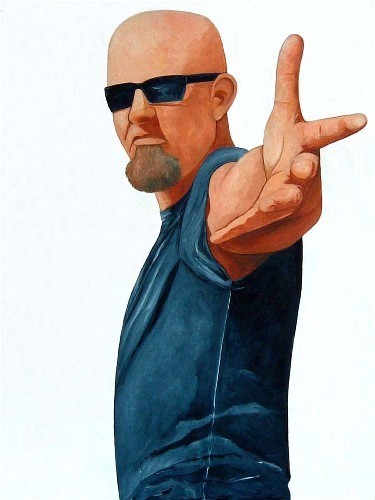 Or how about an admission that your seeker-sensitive, tech-savvy, hip and hype approach isn’t cute, or cool, or fruitful? It’s vital to be informed and attuned to our society, but do I really have to point out that spiking your hair like an anime character and squeezing into your wife’s jeans doesn’t equate to relevance? Neither will a soul-patch or getting inked. I don’t care one way or another about a tie, but tuck in your shirt, eh?* You can stop with the pop-psychology, stop the ego-stroking, stop apologizing for every hard saying in the Bible. The Word of God is called the ‘Sword of the Spirit’ for a reason. Swords have a point and an edge, and so should you. Only the Eternal is truly relevant. Only the Truth sets people free. Trending the latest celebrity-craze (Christian or Secular) boils down to tail-chasing. It’s time to re-read “Not a Fan“. Hipster-dom isn’t discipleship: it’s sowing empty seed on shallow ground.
Or how about an admission that your seeker-sensitive, tech-savvy, hip and hype approach isn’t cute, or cool, or fruitful? It’s vital to be informed and attuned to our society, but do I really have to point out that spiking your hair like an anime character and squeezing into your wife’s jeans doesn’t equate to relevance? Neither will a soul-patch or getting inked. I don’t care one way or another about a tie, but tuck in your shirt, eh?* You can stop with the pop-psychology, stop the ego-stroking, stop apologizing for every hard saying in the Bible. The Word of God is called the ‘Sword of the Spirit’ for a reason. Swords have a point and an edge, and so should you. Only the Eternal is truly relevant. Only the Truth sets people free. Trending the latest celebrity-craze (Christian or Secular) boils down to tail-chasing. It’s time to re-read “Not a Fan“. Hipster-dom isn’t discipleship: it’s sowing empty seed on shallow ground.
I AM STARVING?
Am I wrong or does the pulpit set the tone and temperature for the congregation? Doesn’t leadership bear a measure of responsibility? Being ‘leaders’ and all. To quote Dr. Horrible: “The fish rots from the head…” Perhaps one reason people are leaving church, having difficulty committing is it’s hard to find someone saying anything worth listening to. Don’t give me the “There’s no such thing as a perfect church, and if you find it, don’t go there ’cause you’ll ruin it” line. Most folks aren’t looking for perfection. They know it doesn’t exist. What they’re searching for – what they deserve – is something worth sticking around for. Was Jesus lying when He said the fields were ‘white unto harvest‘?
“The days are coming,” declares the Sovereign LORD, “when I will send a famine through the land– not a famine of food or a thirst for water, but a famine of hearing the words of the LORD. – AMOS 8:11 NIV
God identified Himself as “I AM”. He knows every hair on my head. He knows who I am, where I am, and why I am. I get that. My days are in His hands and He’ll see me through, despite my problems. If like Elijah I have to live off what birds bring and a little stream provides for a season, then I’ll cope. (No, I’m not saying I’m a prophet. I’m talking about provision) Christians are called to declare the unadulterated Gospel and model the action of definite grace. People are dying for it. Their eternal souls depend on it. My fear is I am stuck in that prophecy, and while I’ve been seeking God in prayer and Scripture even more lately, and have confidence God will provide direction, I tremble not only for my own soul, but for my children and grandchildren.
I AM PRAYING
Christians are called to represent the one who saved them, to reflect in some fashion the character of their Lord and Savior. I think the best we flawed sinners can do – even redeemed – is provide a sketch, a caricature if you will, of God. It won’t be perfect, but God keep me from rendering some hideous misrepresentation or superimposing some mortal icon. When I stand before Him, I’d like to have got the important features and proportions correct so it was recognizable.
*My personal conviction is if you’re making dress code of either extreme a major plank in your ministry, you’ve already missed the point.


May 17, 2013
Two emails today
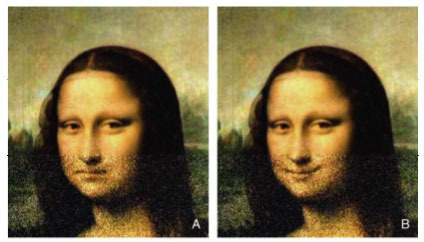
The first from someone in Portugal who wanted to let me know he really enjoyed Running Black and was looking forward to Shift Tense. The wonders of the internet and ebooks. The second from an agent I queried six months ago. Six months for a rejection. I’m not sniveled, really. It’s just no wonder indie-publishing is on the rise.
Mr. Todoroff,
It is with kind thanks that we respond to your submission to Kimberley Cameron & Associates Literary Agency. We apologize for the long delay in our response–the number of submissions we received in 2012 far surpassed our capacity to review and respond. We thank you for your patience as we work to amend this. Please be assured that we have carefully considered your project. Unfortunately, we don’t feel the manuscript is right for us at this time.
Because we receive more than two hundred submissions per week, it is necessary to be extremely selective on a very subjective basis. We wish you the best of luck. There are numerous excellent agents that might be the right fit for your manuscript. Don’t give up!
Sincerely,
xyz…..


May 13, 2013
Losing my religion?

I was asked recently about the ‘religious’ characters in my stories and ‘all that Christian stuff’, and figured I’d post some sort of answer.
I’ll freely admit one of my central goals as a writer is to integrate Christian themes into my work. However, I’m committed they work organically in the plots and I avoid heavy-handed, preachy narrative, or contrived ‘alter call’ moments. I’m not ashamed of my faith or trying to be coy and ‘sneak in’ definite truth-claims, but I feel part of my job as a writer is to keep the story line internally consistent. That means characters – Christian and non-Christian – have to act/re-act in ways that are authentic to their particular worldviews. That’s part and parcel of the calling of any writer. More so, the believer. 
I’m never comfortable analyzing my own work, but Running Black intentionally addresses the sanctity of human life, specifically the premise that a transcendent worldview is the only thing that restrains Man’s inherent inhumanity against their fellow Man. Historically groups dehumanize, demean, and demonize ‘others’, caricaturize them as outcasts and opponents. As a person who has dealt with a physical disability all his life, I’ve encountered this dynamic before.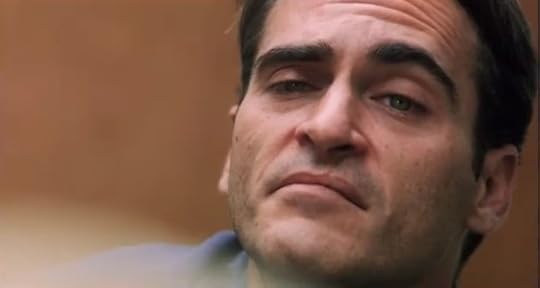
One of the catalysts for the Eshu International series was the fear that cloning technology will one day allow us to mass-produce human beings, who in turn be viewed legally and culturally as solely as property. A high-tech version of slavery. Hopefully, Running Black and even Shift Tense touch that nerve in the midst of all those firefights, explosions and betrayals. 
Now Clar1ty Wars is a different animal. It is a serialized, sci-fi re-imagining of the 19th Century Opium Wars. The big picture is this nasty, shadowy war between the planetary government and massive, space-bound corporations who have been controlling an entire planetary system with a drug. I’m trying to portray the conflict on the street-level using an immersive, mosaic style. There are recurring characters, but each chapter offers a different perspective, a new piece of the puzzle. The Clar1ty Wars focuses on regular people – the good, the bad and the ugly – caught in the crossfire of a war.
Acknowledged or not, religion and spirituality play a major part in our societies and people’s lives. This has been true all over the planet for centuries up to today. And wishful humanist thinking aside, I don’t see that dynamic disappearing any time soon. For me and my writing, it means devout characters will play their parts along side the rest as the conflict unfolds. For example, the cabbie in One Bad Apple’s ‘The Doubter’ learns to see the protagonist, Seeb, in a new light. Little does he know it, but he’s slated for another appearance at a crucial time in a later installment. 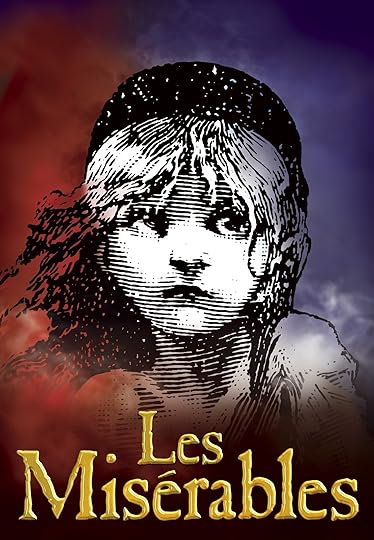
Hope that helps. If you have an further questions just ask.


May 9, 2013
Red Flags in June
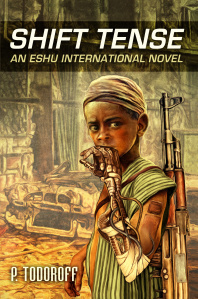
Quick Announcement that SHIFT TENSE Part One – Red Flags will be available sometime in June. The manuscript is at the editor and Michal Oracz is working on the first of three new covers, one for each installment. He should have the first completed soon. So if all goes according to plan, the full novel will be released in both trade paperback and ebook at the end of the year.
I’ll post the cover art as soon as I get it.
Thanks.





